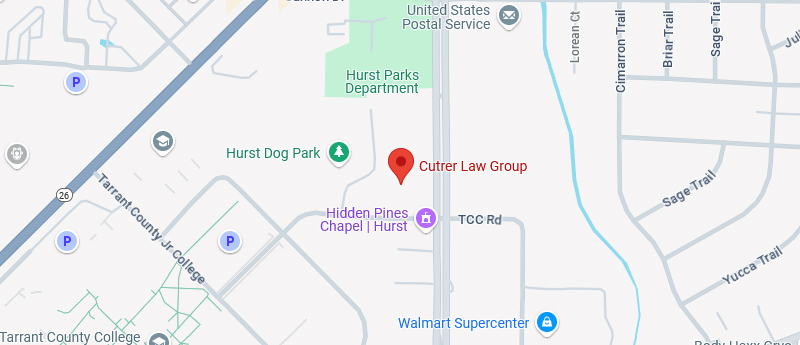What Happens When Someone Dies Without a Will in Texas?
When someone dies (the decedent) without a will, that’s known legally as dying intestate. Unfortunately, it can have significant consequences for the decedent’s surviving family members; often, those consequences aren’t something the decedent would have wished for.
Here’s how the state of Texas approaches distributing the assets of someone who died intestate.
- Spouse. If the decedent has a surviving spouse, they’ll receive all of the decedent’s part of the marriage’s community property. (An explanation of community and separate property is below.) If the marriage produced no children, the separate property will be divided between the spouse and the decedent’s surviving parents and siblings. If there are children from the marriage, the personal property will be divided between them and the spouse. Note that the spouse is still considered a spouse if the couple is estranged or separated, but not if divorced. If someone has separated but not yet divorced, it’s highly advisable to create or update their estate plans to avoid having property going to the person they want to divorce.
- Children. If the decedent’s spouse had already passed or they were divorced, the children would receive equal shares of the estate. If one of the children had their own children but passed away before the decedent, the grandchildren would receive equal parts of their parent’s share. The court isn’t interested in considering any children or grandchildren who may have been especially close to or estranged from the decedent. That means the decedent should have had an estate plan that would allow them to adjust each recipient’s inheritance accordingly.
- Parents and siblings. If the decedent still has surviving parents, and the decedent doesn’t have a surviving spouse, children, or siblings, their estate would go to their parents with each parent receiving one half. If the decedent didn’t have a surviving spouse or children but did have surviving parents and siblings, the estate would be divided in half, with one half going to the parents and the other to the siblings. If one of the siblings has children, but the sibling has passed away, those children would divide their parents’ share among them.
- Other relatives. If the decedent has no surviving spouse, children, parents, siblings, grandchildren, or nieces or nephews, the estate would be divided equally among surviving relatives on each side of the decedent’s family.
- Texas. If surviving family members can’t be found, the estate will become the property of the State of Texas. No legal mechanism exists for any part of the estate to be passed on to close friends, neighbors, or organizations such as nonprofits. That’s another reason to work with legal assistance with wills in Bedford to ensure your estate will be distributed as you want it to be, not as the state legally mandates for intestate cases.
What Is the Difference Between Community and Separate Property in Texas?
Texas is one of only a few community property states in the U.S. Each state that follows community property law handles it slightly differently. A very high-level description would say that community property is the property shared or acquired by the couple during the marriage. Separate property is property owned by one spouse before the marriage or received or inherited by one spouse during the marriage and not made available to the other spouse during the marriage.
That leaves a great deal of room for interpretation, however. Something that appears to be separate property can later be viewed through the lens of community property. For example, if someone were a fine art collector before marrying, their art collection would initially be considered separate property. However, if both spouses purchased art for the collection using household income during the marriage, the collection may then be viewed as separate. The same applies if someone receives a cash inheritance but puts the money into a joint bank account and uses it as a couple.
This is important in the context of dying intestate to understand how the court would approach dividing the estate in the event that there is more than one surviving family member who’s eligible to receive an inheritance. The estate would go through probate court, which can be time-consuming and expensive, especially if there are challenges.
What Happens to the Guardianship of Orphaned Minors When Someone Dies Intestate in Texas?
This is another vital function of a will. If someone dies intestate and the other parent of their minor child is no longer living, the probate court will be the organization to determine who the child’s legal guardian should be. That could very well be someone the decedent wouldn’t have chosen. The court often looks to family members, but if someone has strong opinions about which family members–or perhaps someone who’s not a family member at all–should become guardian for their child after their death, it’s critical to have a legally binding will establishing that.
What Should I Do if I Might Need Help Developing an Estate Plan?
Call the Cutrer Law Group at 817-813-8513 for a case evaluation. Each estate is unique and has its own challenges, so working with our team of experienced, knowledgeable estate planning attorneys can help you develop the best plan for your specific case. Working with legal professionals can be the best way to ensure your wishes will be carried out in the future. It’s especially crucial for estates whose owners want to include nonfamily members or not include specific family members.





 1845 Precinct Line Road
1845 Precinct Line Road info@akcfamilylaw.com
info@akcfamilylaw.com 817-854-1651
817-854-1651



